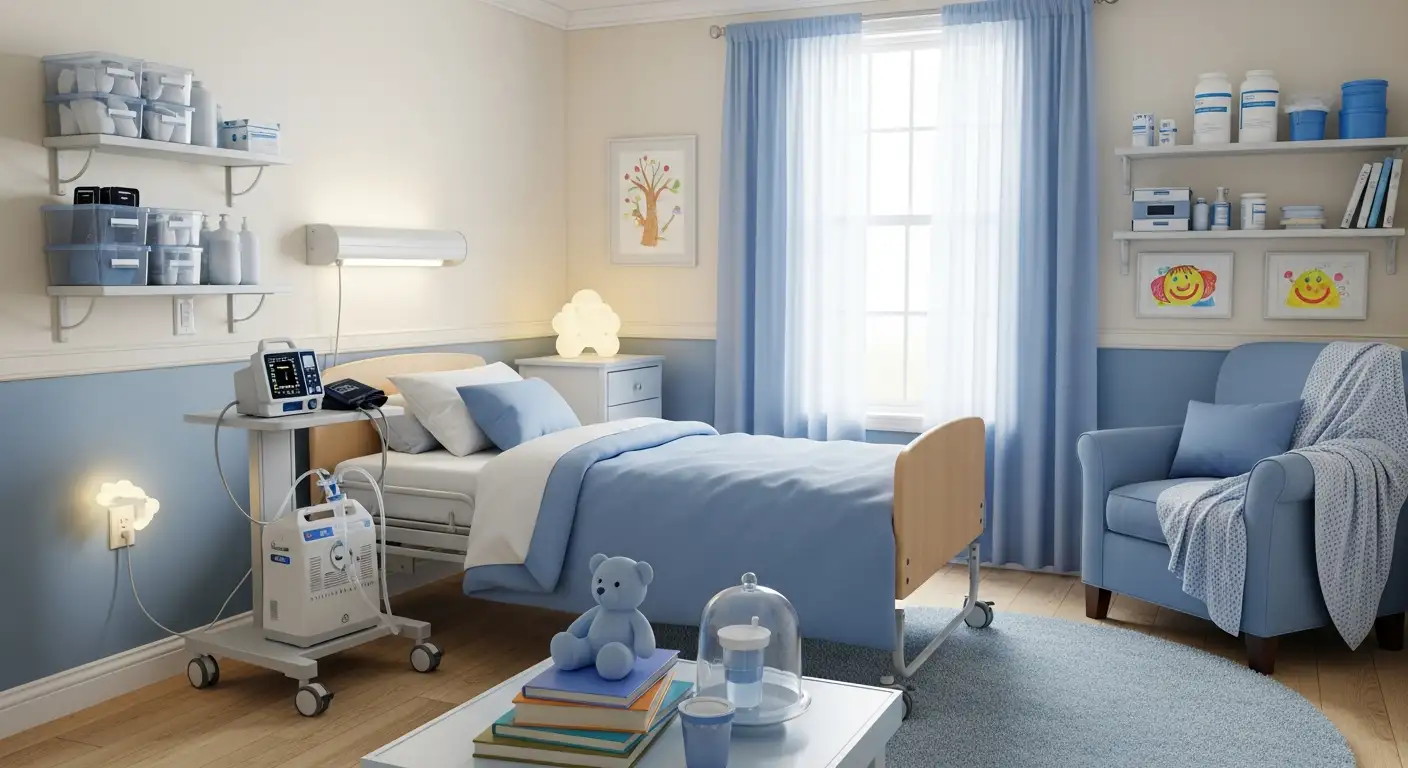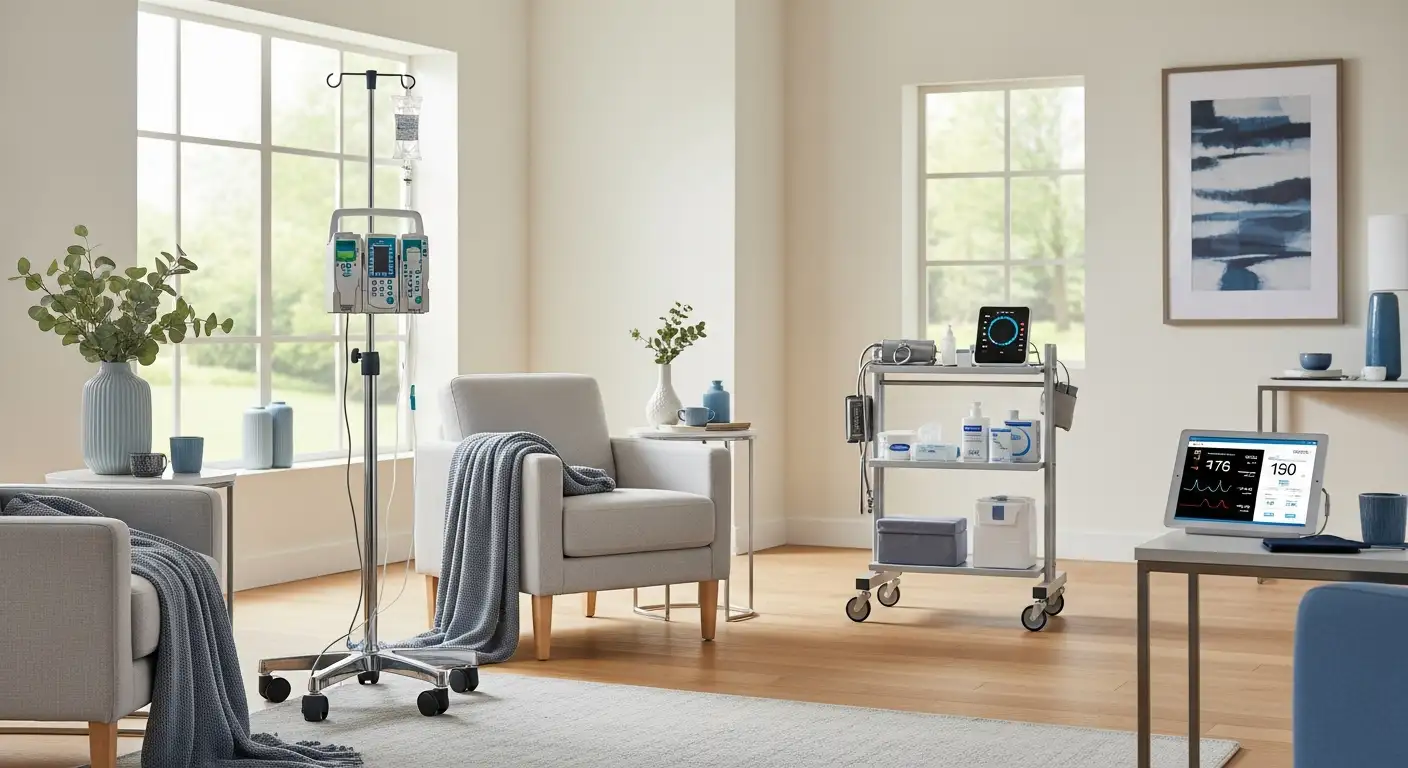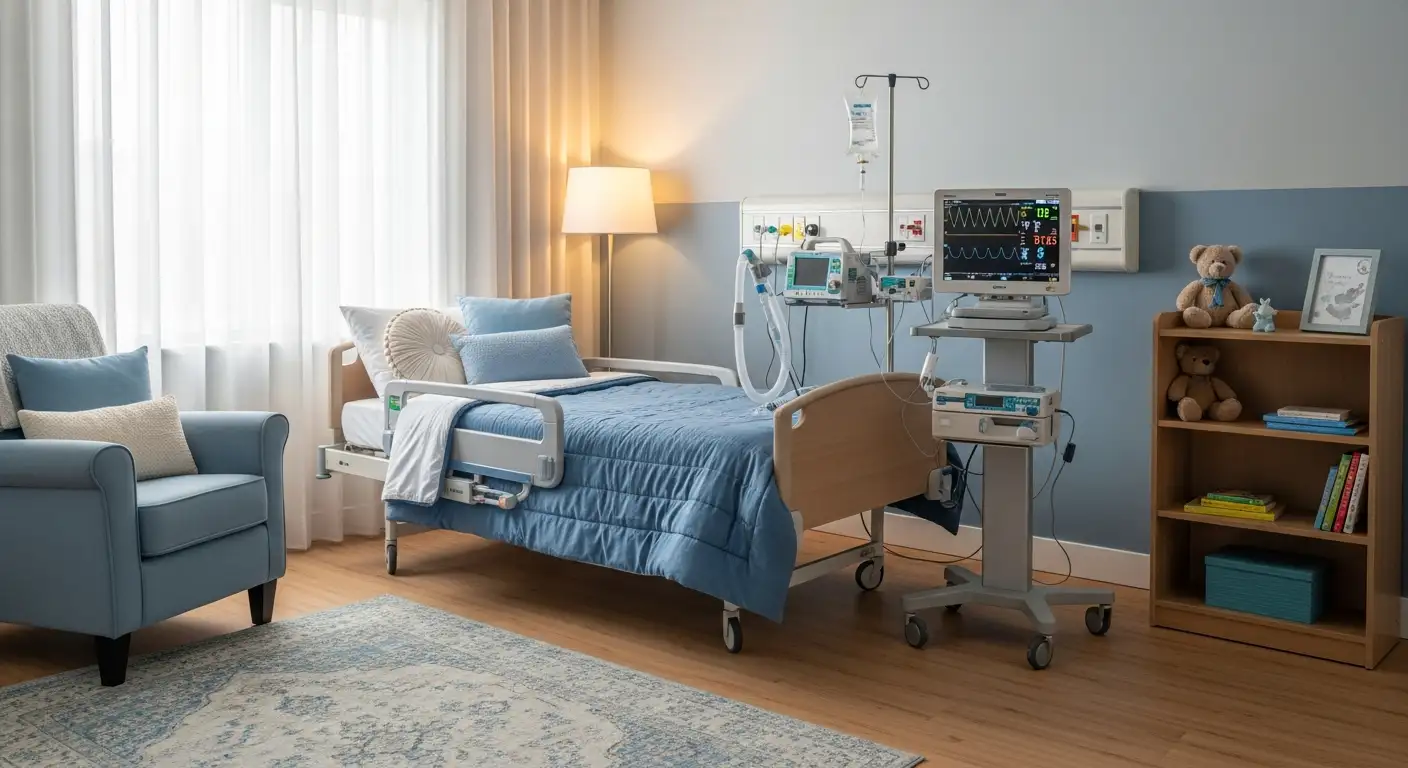Understanding the Foundation of Pediatric Home Care
Pediatric home care plays a vital role in nurturing a child's development by delivering personalized healthcare services directly within the child's natural environment. This approach not only ensures continuity of care but also offers a supportive and familiar setting that fosters emotional well-being, which is essential for healthy growth from infancy through early childhood.
Benefits of Pediatric Home Care in Early Childhood Development
 Pediatric home care plays a vital role in nurturing early childhood development by customizing care specifically to each child's needs. When children receive treatments like physical, occupational, and speech therapies at home, they benefit from a tailored approach that considers their environment and routines. This personalized care helps support their physical, cognitive, and social growth more effectively.
Pediatric home care plays a vital role in nurturing early childhood development by customizing care specifically to each child's needs. When children receive treatments like physical, occupational, and speech therapies at home, they benefit from a tailored approach that considers their environment and routines. This personalized care helps support their physical, cognitive, and social growth more effectively.
Being in a familiar environment is one of the main advantages of home care. It promotes emotional well-being by creating a sense of safety and comfort. Such settings allow children to develop confidence, reduce anxiety, and build trust with caregivers, which are crucial for their social and emotional development.
Early detection and intervention are essential elements of pediatric home health services. Healthcare providers can monitor children closely through regular developmental screenings and assessments in the home environment. Identifying delays or health concerns early enables timely support, leading to better outcomes and more efficient intervention strategies.
Ongoing therapies such as physical, occupational, and speech therapy are seamlessly integrated into everyday routines when delivered at home. This setting allows for customized therapy based on the child's actual environment, promoting motor skills, coordination, and communication abilities. Such continuous support fosters independence and helps children participate actively in daily activities.
Regular home visits and involvement of families create stronger bonds within the family unit. Parents and caregivers are actively engaged through training and support, empowering them to aid their child's development. Maintaining consistent routines and a stable environment further reinforce developmental milestones and foster emotional security.
Moreover, providing care at home reduces stress associated with hospital visits, which can be overwhelming for children. This familiar setting minimizes disruptions, making health and developmental assessments more comfortable and less intimidating. It also helps in reducing healthcare costs and hospitalization rates by promoting early management of health issues.
In essence, pediatric home health services support a comprehensive approach to early childhood development by combining personalized care, emotional stability, early intervention, ongoing therapy, family engagement, and cost-effective healthcare. These elements work together to promote healthier, more confident, and emotionally resilient children, setting a strong foundation for lifelong growth.
How Pediatric Home Care Supports and Promotes Developmental Milestones
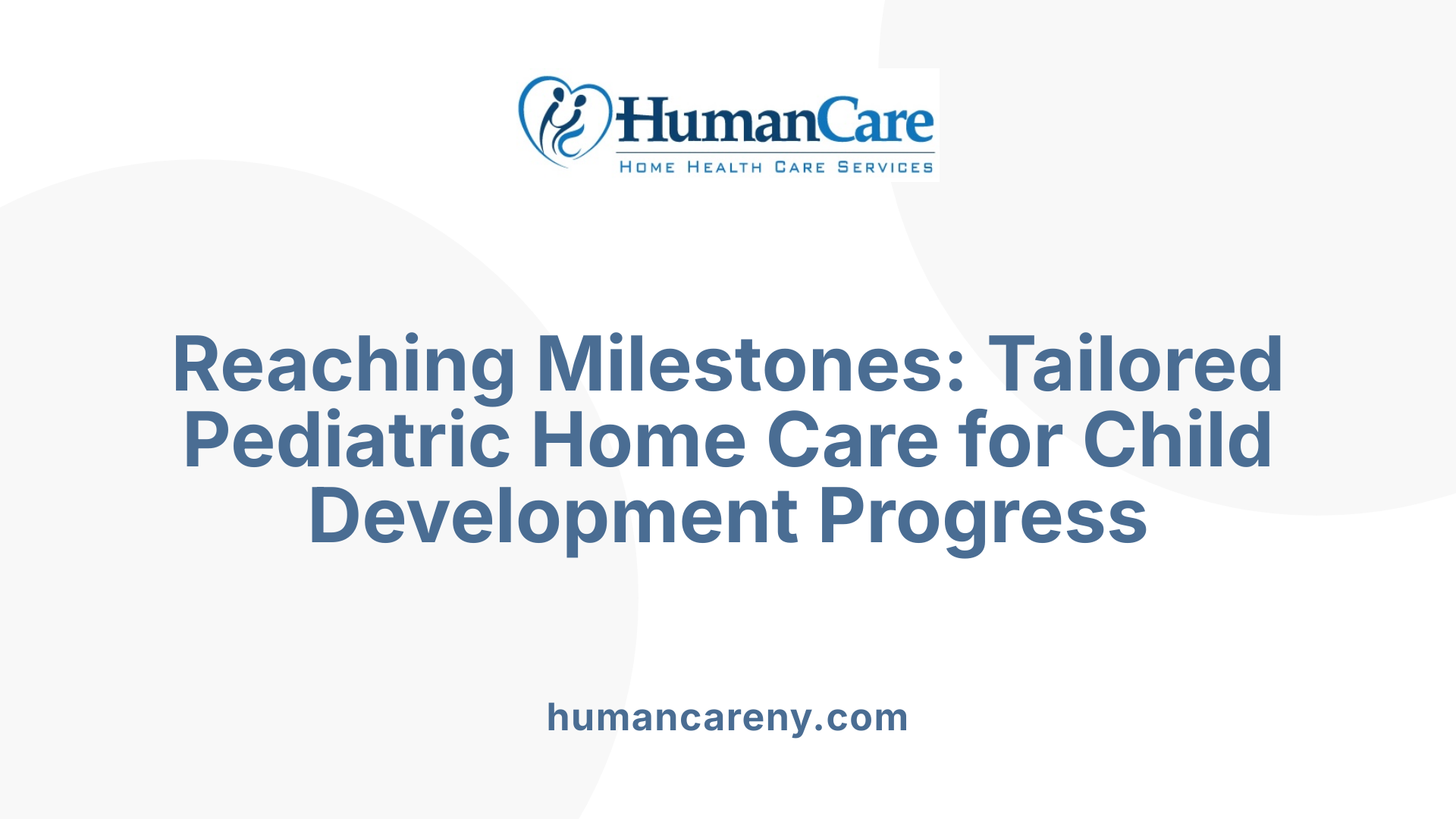
How does pediatric home care support and promote child development milestones?
Pediatric home care plays an essential role in fostering healthy child development through personalized, at-home healthcare services. One of its primary functions is providing tailored health monitoring and conducting regular developmental screenings. These assessments help identify any delays or concerns early, enabling timely interventions that can significantly improve outcomes.
Supportive activities encouraged during home visits include age-appropriate play, reading, and social interactions. Caregivers and healthcare providers work together to facilitate sensory exploration, motor skill development, and language acquisition. Safe environments created within the home setting promote confidence and independence, allowing children to explore freely while developing crucial physical, cognitive, social, and emotional skills.
Moreover, pediatric home care involves coordinating necessary interventions, such as therapy services or behavioral support when developmental delays are detected. Through ongoing guidance and education, families learn how to support their child's growth effectively. This includes understanding developmental milestones like walking, talking, and socializing, and incorporating activities that promote these skills.
By maintaining consistent, nurturing routines and emphasizing early engagement, pediatric home care supports children in achieving key milestones. This proactive approach not only promotes physical and cognitive development but also strengthens emotional bonds and social skills.
In summary, through personalized assessments, early interventions, and guidance on enriching activities, pediatric home care ensures children receive the support needed to reach their developmental potential, all within the comfort and familiarity of their own home environment.
Supportive Services Offered to Enhance Child Development
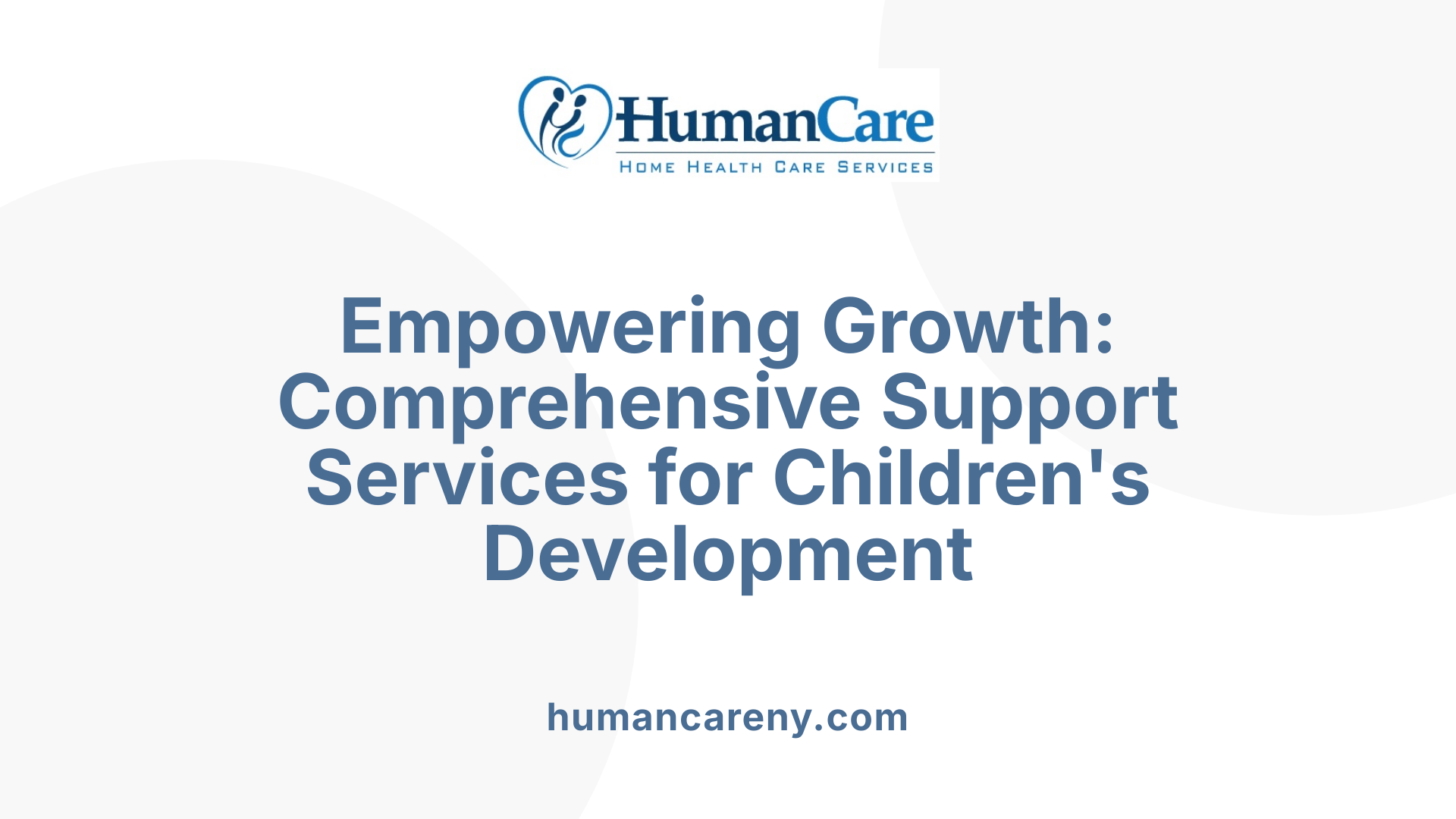
What supportive services does pediatric home care offer to enhance child development?
Pediatric home care provides an array of supportive services tailored to promote comprehensive child development. These include developmental assessments and regular screenings that help monitor progress and identify early signs of delays or concerns.
Therapeutic services such as speech therapy, physical therapy, and occupational therapy are integral. Speech therapy improves communication skills, while physical and occupational therapies support motor skills, coordination, and physical strength.
Health education is customized to each child's needs, empowering caregivers with knowledge about developmental milestones, nutrition, and safety practices. This fosters a nurturing environment that actively encourages growth.
Training programs are designed to involve parents and caregivers deeply, equipping them with skills to support their child's daily routines and developmental goals. Integrating therapy into regular activities ensures interventions are effective and contextually relevant.
Fostering independence and adaptive skills like self-care, dressing, and basic daily tasks is also a focus. Children are guided to build confidence and participate actively in their surroundings.
In-home pediatric services create an environment of comfort and familiarity, reducing stress and building trust between the child and caregiver. This setting allows for real-time, personalized intervention tailored to the child's individual needs.
Furthermore, active parental involvement through ongoing education and support enhances the child's emotional and social development. It empowers families to advocate for and nurture their child's overall well-being.
Overall, pediatric home care integrates medical, therapeutic, and family-centered approaches to support a child's growth holistically. This approach fosters development across physical, cognitive, emotional, and social domains, helping children reach their milestones and develop independence in a safe, supportive environment.
Role of Caregiver Support and Community Resources in Development

How do caregiver support and community resources influence a child's developmental progress?
Caregiver support and community resources play a vital role in shaping a child's developmental journey. When families have access to educational programs, respite services, and emotional assistance, caregivers are better equipped to nurture their children's growth.
Community programs like Help Me Grow provide early intervention services that help identify and address developmental delays early on. These programs support children in reaching important milestones in areas such as communication, social skills, and behavior.
In addition, resources such as legal aid, healthcare, and housing services help families manage their responsibilities more effectively. Reduced stress from stable housing and health support allows caregivers to focus more on nurturing their child's physical, emotional, and cognitive development.
Support groups and caregiver training programs offer opportunities to learn effective caregiving techniques and share experiences. Respite services give caregivers necessary breaks, preventing burnout and ensuring consistency in care.
Collectively, these community resources strengthen the caregiving environment, leading to improved emotional bonds and healthier developmental outcomes. They foster resilience within families, empowering caregivers to support their children's needs confidently.
How do these supports impact child's growth?
Access to community and caregiver resources helps children develop essential skills such as language, social interaction, and motor abilities. They also promote stability, emotional security, and the ability to explore their surroundings confidently.
By addressing physical, emotional, and developmental needs early, these services contribute to better lifelong health and well-being. Overall, strong support systems for caregivers translate directly into positive developmental trajectories for children.
Educational Perspectives: Connecting Pediatric Home Care and Developmental Progress

What educational information explains the connection between pediatric home care and developmental progress?
Educational insights reveal that pediatric home care plays a pivotal role in supporting a child's developmental journey through tailored interventions, ongoing observation, and caregiver involvement. Leading organizations such as Zero to Three and Reach Out and Read emphasize the importance of early language stimulation, social-emotional nurturing, and motor skill development early in life.
Home-based healthcare services include skilled nursing, physical, occupational, and speech therapy, all designed to meet each child's specific needs within a familiar setting. This environment not only fosters emotional security but also encourages consistent routines that are crucial for reaching developmental milestones.
By integrating regular medical care with early developmental activities, caregivers and healthcare providers create a foundation that enhances learning readiness. Trusting relationships built at home support children's confidence and curiosity, key drivers of exploration and learning.
Furthermore, early detection through routine screenings allows for prompt intervention, helping children stay on track with their developmental goals. These combined efforts in medical and educational support prepare children for successful transitions into school and lifelong learning.
In summary, educational resources and pediatric home care services together facilitate early intervention, promote essential skills, and empower families, laying the groundwork for optimal development in children aged zero to five.
Fostering a Child's Future Through In-Home Support
In conclusion, pediatric home care provides a comprehensive platform that supports every stage of a child's development. By integrating medical treatments, therapies, caregiver training, and community support within a comfortable environment, pediatric home care ensures children reach their developmental milestones effectively while fostering emotional security and independence. The active involvement of families and the seamless coordination among healthcare providers create a nurturing ecosystem that promotes physical, cognitive, social, and emotional growth. As early intervention and continuous monitoring are key to healthy development, pediatric home care remains an invaluable resource for nurturing the potential of every child.
References
- How Pediatric Home Health Care Supports Child ...
- How In-Home Pediatric Services Can Boost Your Child's ...
- Developmental Milestones Matter
- Navigating Pediatric Milestones: A Handbook for Parents
- Enhancing Child Development: the Role of Caregiver ...
- NURSING CARE FOR INFANCY THROUGH ...
- Supporting Children's Development - ChildCare.gov
- Pediatric Home Health Care — What You Need to Know
- Understanding the Long-Term Benefits of Pediatric Home ...

